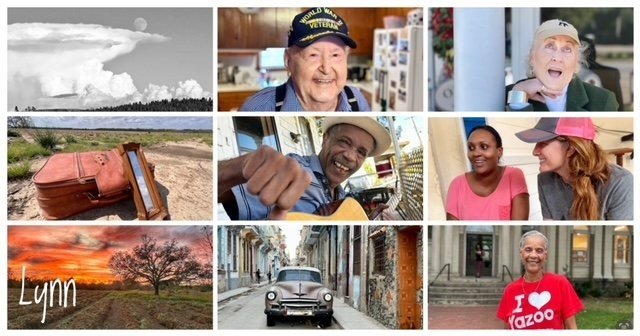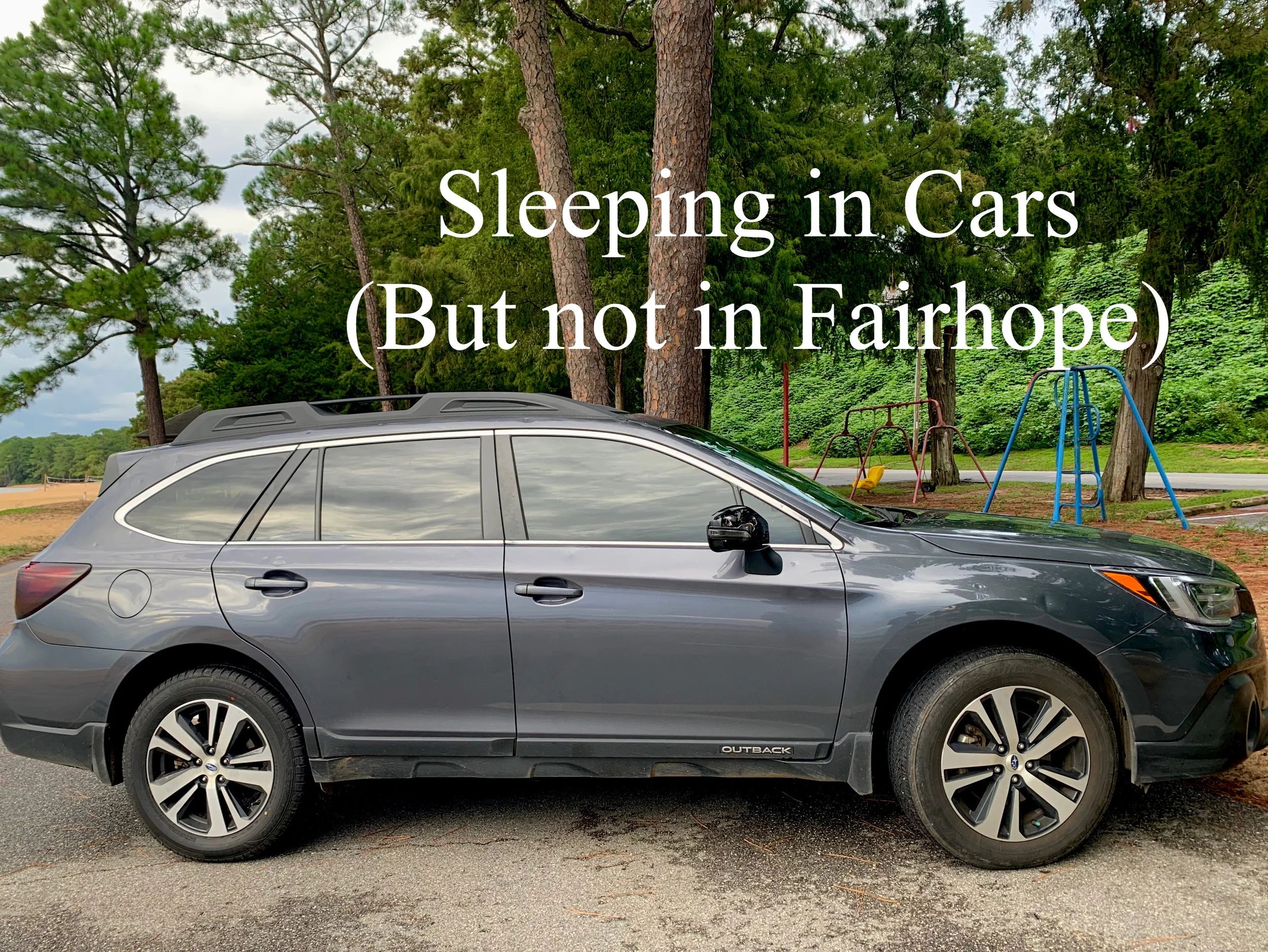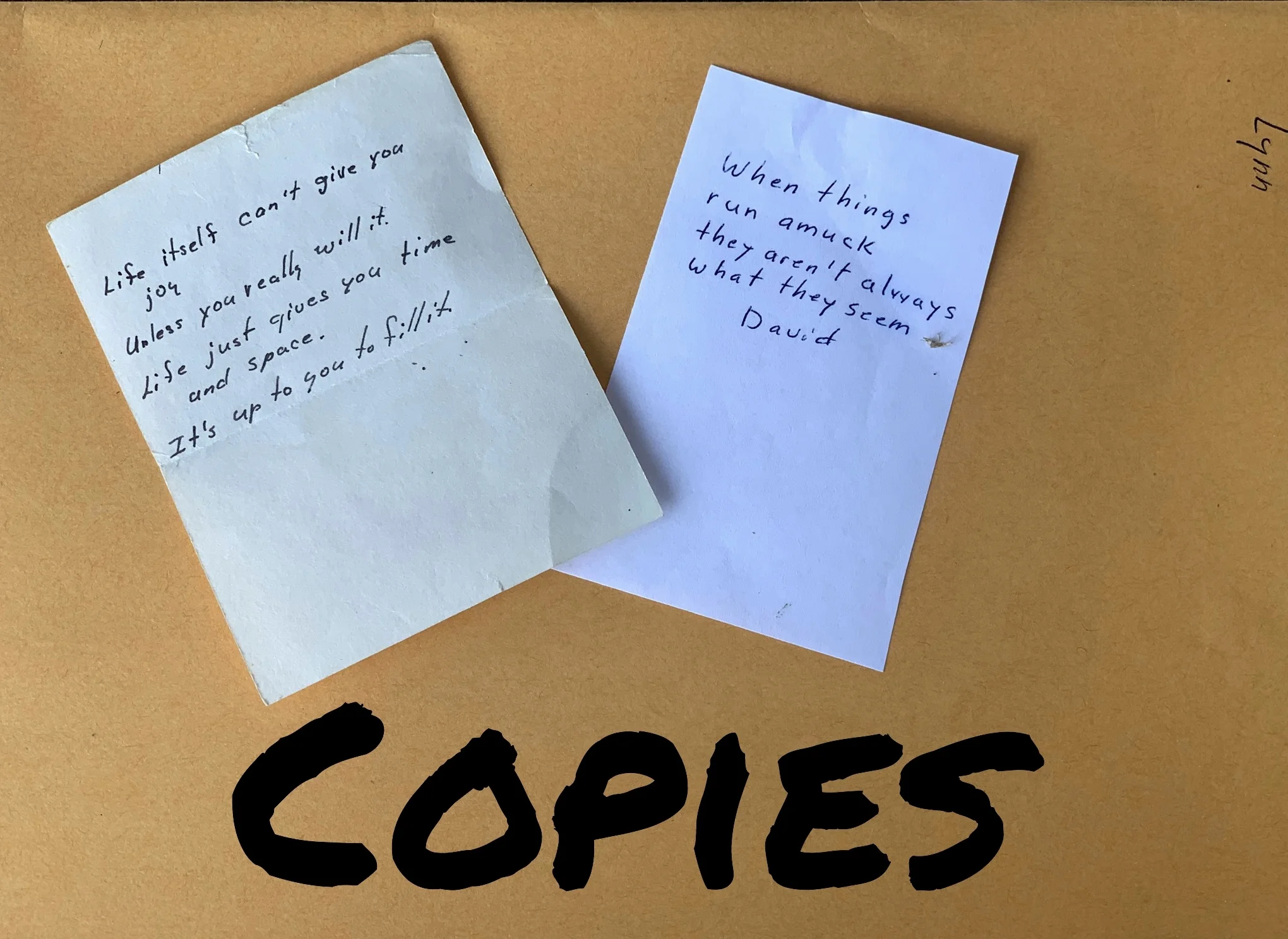Sleeping In Cars
Alexis
Alexis and her five kids, ages 8 to 14, lived in her car for five months. The day her boyfriend pulled a gun on her was the day she drove away, with her kids and the clothes on her back.
They had been together for almost 17 years. He was a good father and provider. The kids never saw his abuse, so she stayed.
“When he pointed his gun at me, that was the last straw,” she said. “I realized one day he would kill me. My daughters are older now and I don't want them to think this is what a woman goes through."
A certified medical assistant, her last job was sitting overnight with a patient. After her patient fell asleep, Alexis sneaked her kids into the house to sleep on the floor. She said it was her only choice.
Fearing for her life, Alexis kept moving for safety. Her car broke down several times and she used the little money she had for repairs. No car, no pay. They found shelter at Penelope House, but Alexis explained that work and car issues kept her out past the domestic violence shelter's curfew. She broke the rules and her family had to go. Her car provided a refuge while she waited to move up the Community Housing Program list at Housing First that aims to end homelessness in Mobile and Baldwin counties.
As she told her story in the back seat of Elizabeth Chiepalich's truck, Alexis received a message that her car was being repossessed because of missed payments.
“What do I do now?” she asked.
Elizabeth runs the group Homeless in Mobile, and connects the homeless with food, shelter, clothing, and services they need. She explained that Mobile County School System has social workers for homeless families who can help with clothes, transportation, and uniforms for the children. She reassured Alexis that DHR does not take kids away from parents just because they are in a difficult situation.
"I am so stressed and trying to hold on for my kids," Alexis said. "They are my motivation and I am scared of having them taken away."
Elizabeth prayed, "Jesus, open the door for these children" and made a phone call to get the family into housing. Hanging up, she quoted a few lines from the song "Help is on the Way."
Help is on the way
Help is on the way
Whatever the struggle, whatever the pain
No matter the fear or the battle you face
Help is on the way
Help is on the way
You are not alone
All of Heaven's on your side
Every prayer is heard
Your rescue is coming just in time
Alexis smiled for the first time. "I am going to overcome this," she said. "I am going back to school to become a nurse. I never want my kids to go through this again."
Elizabeth said many people living in cars are the working poor, barely surviving on their own and unaware of the services available to them. Sometimes a mental illness or psychological issue causes an eviction from housing. Most would rather sleep in their cars than a crowded shelter.
"Having a car is significant because it gets them to work and keeps them from sleeping on the sidewalk. But it breaks down, runs out of gas, or gets towed," she said. "I am working with five families living in cars right now. I have helped teenagers living alone in cars who go to school."
Elizabeth said churches should open their parking lots and provide a safe place for those living in cars to park at night.
"Jesus tells us to care for the least of these, but serving people is not convenient, clean, or easy," she said. "Their lives are about survival. Look at what they have been through. What would you do if you had very few options?”
I have ridden several times with Elizabeth as she delivered diapers, food, and clothing, or offered rides to shelters. I have also interviewed people living in cars or stripped-out school buses for Our Southern Souls.
Abby
Abby stood on a corner in Tuscaloosa holding a sign that read, "Window wash. Need help. Food. Even Change. God Bless You!" She recently left her abusive husband and slept with her dog in her car parked nearby. Chased out of several parking lots, a policeman told her she would be safe at this shopping center.
She left her husband because “it wasn’t going to end up good.” She didn’t know what to do next.
"I don’t mind sleeping in my car because no one is waking me up screaming at me," she said. "I have been with him for almost 20 years. I left him before, but he always finds me. It is easier to give in and go back than to keep trying to live on my own. I was controlled by my mother and then by my husband. I just want to be free and happy."
A few people stopped to offer food, change, or encouragement.
"No one has let me wash their windows yet," she said. "I have never done anything like this. At least people haven’t been critical or mean."
Unfamiliar with the Turning Point domestic violence shelter in Tuscaloosa, Abby promised to go after I gave her the number and gassed up her car.
In 2018, Lifelines Counseling Services in Mobile made 251 homeless referrals based on calls made to the United Way of Southwest Alabama’s 211 call center, connecting people to the help they need. Two-hundred sixteen of the homeless calls were from Mobile County and 35 were from Baldwin County. That number is 151 from the two counties in 2019.
“Homeless families and individuals call the 211 helpline looking for shelter,” said Mary Howard, the call center manager. “There is a large gap in needs and services in south Alabama. We struggle with where to send the homeless in Baldwin County because there are very few shelters and Family Promise can only house a few families. Sleeping in cars or couch surfing with relatives or friends is how some hold on. We don’t know where the others go.”
People who live in cars parked at the Fairhope beach call it "boondocking," a term for camping for free.
"I am dying. I have cancer in my brain," said a boondocker reading in a chair beside her car packed with everything she owned. "I shucked off my responsibilities and this is my view for the last few months of my life. Whatever color I want to rest my eyes on, it is here."
She occasionally paid $259 for a week for a motel, but couldn't afford that every week. Her credit card bill would be paid off in four months and she would leave behind no debt.
"There is privacy in some places far away from sidewalks so I can lean the seat back and sleep,” she said. “I am not in the way and people leave me alone.”
Joe often parked around the rose garden at the Fairhope Pier. He moved into his car when he could no longer afford housing. His 1989 Lincoln Continental took him across the country and on the West Coast. He also used the car as a signboard for scripture because “Jesus always provided” for him. He called himself, "an itinerant preacher of the Lord Jesus Christ."
Joe said sleeping in his car was cheap and convenient, but not always safe or easy. His car was hit in a parking lot while he was sleeping. The collision "distorted it from the beautiful car it was, but it still drove perfect." The scripture where his car was hit read: “If you have done it unto one of the least of these my brethren, you have done it unto me.”
"Sometimes people give me money or help me out and I try to pass some of that on to someone else," he said. "It’s hard to hold your balance when you are pushing against the tide.”
More than 6,850 children in the Mobile Public School System are homeless, living in motels, shelters, or doubled up with friends or family members. More than 200 children are identified as homeless in the Baldwin County Public School System.
*Some names have been changed for the privacy and safety of people mentioned in this story.
*On August 26, the Fairhope City Council unanimously voted to override Mayor Karin Wilson’s veto on an ordinance that would make it illegal to sleep in cars in Fairhope from 10 p.m. to 6 a.m.






